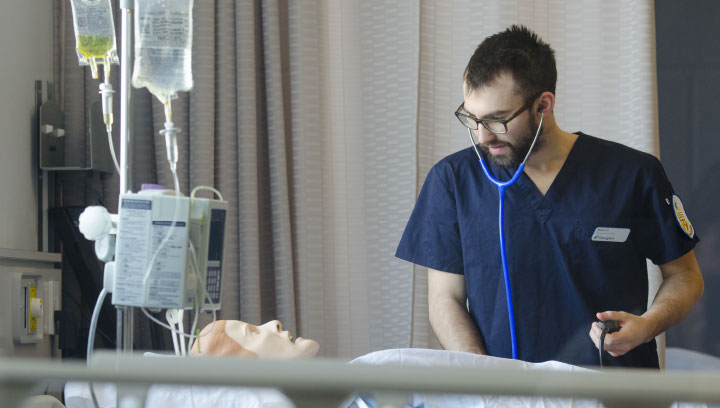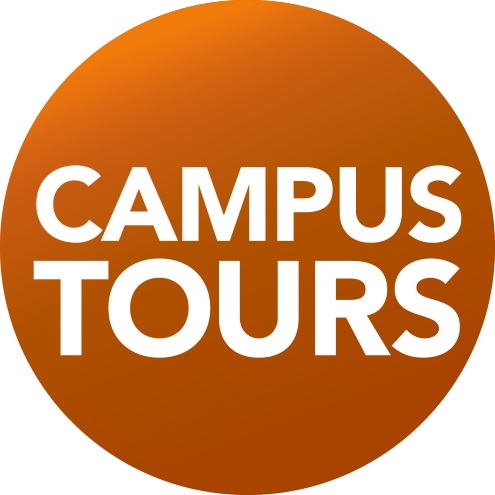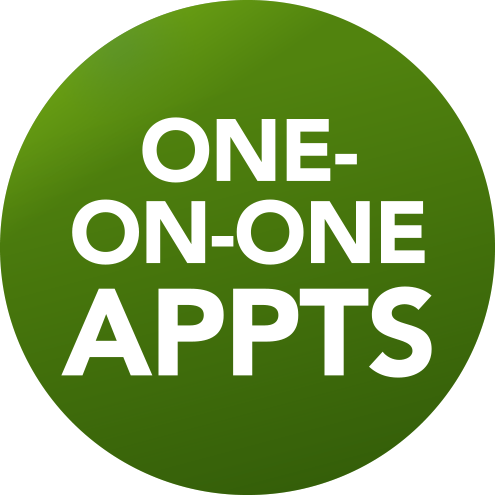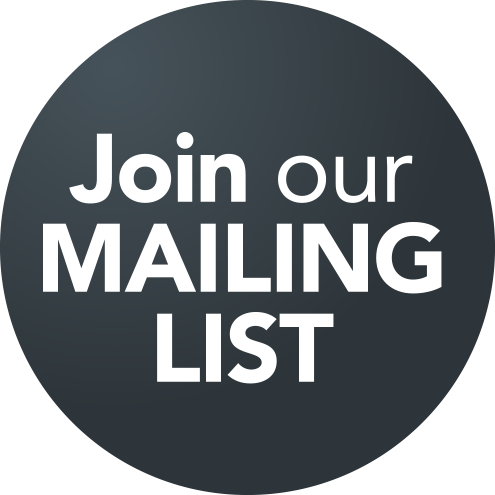
Shape young minds with a career as an early childhood educator (ECE)
Early Childhood Education Ontario College Diploma program
Enjoy engaging faculty. Experience exciting, project-based classes. Choose a variety of hands-on experiences in the ECE field.
Part-time
Program information
Program description
Within this program’s unique blend of theoretical knowledge and practical experience, students prepare to work with children (birth to 12 years old) and their families. Students learn how to support children’s holistic development and facilitate their adaptation to the challenges of everyday life. Students acquire the skills to be responsive caregivers while respecting diversity and the rights of children and families. They discover the multifaceted benefits of play-based learning through experiential courses that focus on outdoor learning, creative expression, and science and technology. Emphasis is placed on partnerships with families, other professionals, and community programs, as these form the foundation of working in the field of early learning and care. This approach to learning reflects the view that children are curious, capable and skilled and grow up in families with diverse social, linguistic and cultural backgrounds. Through two field placements, students have the opportunity to apply their knowledge and transfer their skills as they engage with children and adults in early years learning settings within the community. Students develop a range of abilities and best practices crucial for success in the various learning environments they may find employment in within the field of early childhood education.
Intake information
| Start date | Campus |
|---|---|
| Summer 2026 | Barrie |
| Fall 2026 | Barrie, Orangeville, Owen Sound |
| Winter 2027 | Barrie |
| Summer 2027 | Barrie |
Tuition and fees
- Visit our tuition and fees page for detailed information on the cost to attend Georgian.
- You can afford this! Explore OSAP as well as awards, scholarships and bursaries to help you pay your way to graduation.
Work-integrated learning
- This program includes a field placement component where you’ll gain hands-on experience in a setting relevant to your program.
- Learn about types of work-integrated learning at Georgian.
What are the admission requirements for the Early Childhood Education program?
Early Childhood Education admission requirements
- Ontario Secondary School Diploma (OSSD) or equivalent or mature student status
- Grade 12 English (C or U)
Mature students, non-secondary school applicants (19 years or older), and home school applicants may also be considered for admission. Eligibility may be met by applicants who have taken equivalent courses, upgrading, completed their GED, and equivalency testing. For complete details refer to: www.georgiancollege.ca/admissions/academic-regulations/
Pathways
Applicants who have taken courses from a recognized and accredited post-secondary institution and/or have relevant life/learning experience may also be considered for admission; refer to the Credit for Prior Learning website for details:
www.georgiancollege.ca/admissions/credit-transfer/
Criminal Reference/Vulnerable Sector Check
Placement agencies require an up-to-date clear criminal reference check and vulnerable sector check prior to going out on placement. Students should obtain their criminal reference three months prior to placement; checks conducted earlier may not be considered current. As some jurisdictions require longer lead-time for processing, please check with the program coordinator to ensure you allow for sufficient turn-around time. It is the student’s responsibility to provide the completed document prior to placement start.
NOTE: A record of criminal offences, for which a pardon has not been granted, may prevent students from completing their placements, thereby affecting their ability to graduate.
Additional information
Applicants may be asked to provide community agencies with proof of completion of Standard First Aid and CPR Level C certification as well as an up-to-date immunization record with a two-step TB test in some circumstances to proceed with field placement. Students are required to review agency requirements provided by the field placement office. Proof of completion of the Ontario Ministry of Labour Health and Safety Awareness training must also be provided before proceeding on field placement.
It is strongly recommended that students accepted into the ECE program have volunteer or past work experience in a licensed childcare setting. This experience orients and prepares the student for their academic work in the ECE program.
Bring Your Own Device (BYOD) requirements
What career paths can I take as an early childhood educator?
Your Early Childhood Education diploma gives you many career opportunities
Graduates are qualified to apply to become a Registered Early Childhood Educator (RECE) with the College of Early Childhood Educators.
Graduates may work in a variety of early learning settings, including licensed childcare programs, before-and-after school care, family home child care, early years resource centers, children’s mental health agencies, private home childcare, kindergarten programs, and recreation programs, as well as school readiness and early intervention programs.
Growth is also occurring in the area of contractual employment and self-employment.
Support childcare in Bruce County for the Owen Sound campus
Support childcare in Dufferin county at our Orangeville campus
Why study Early Childhood Education at Georgian?
At Georgian, you will enjoy moderate class sizes with your peers where the professors will get to know you and are committed to your success.
Our curriculum is current, responsive to the developing changes in the field, and designed to provide you with the needed hands-on practise to develop the confidence and expertise you need to work with young children and their families.
Georgian’s ECE program has several articulation agreements with a number of university programs offering many desirable options for our graduates.
Flex MORE. Study Early Childhood Education part-time
Benefits of studying part-time:
What you need to know:
Next steps:
What courses are included in the Early Childhood Education diploma program?
Course overview
21 Program Courses
2 Communications Courses
3 General Education Courses
2 Field Placements
Program-specific courses
Semester 1 courses are listed below. For a full list of courses in the program including course descriptions, view the Early Childhood Education program outline.
- ECED 1012 – Child Development (birth to 12 years)
- ECED 1018 – Foundations in ECE
- ECED 1033 – Supporting Inclusive Play Experiences
- ECED 1039 – Creative Expression
- ECED 1040 – Developing Partnerships with Families
- ECED 1041 – Science, Technology, Engineering, Art, Math and Outdoor Learning
- COMM 1016 – Communication Essentials
- Select 1 course from the general education list during registration.
Your course delivery method(s)
In person
This program is delivered fully in person and requires you to attend campus.
Please note, delivery methods are based on planning for the upcoming semester and are subject to change.
Frequently asked questions (FAQs)
Early Childhood Education is an exciting program that presents you with the necessary knowledge, skills and attitudes to work with children from the ages of birth to 12 years of age and their families.
At Georgian, you will enjoy moderate class sizes with your peers where the professors will get to know you and are committed to your success. Our curriculum is current, responsive to the developing changes in the field, and designed to provide you with the needed hands-on practice to develop the confidence and expertise you need to work with young children and their families. Your role, the importance of play and how children develop is the basis of this program.
The Early Childhood Education (ECE) program is offered full-time at the Orillia, Orangeville, and Owen Sound campuses. The program spans four semesters, with each semester running for 14 weeks of classes plus a reading week, for a total of 15 weeks.
- Semester 1, 2, and 3 focus on academic learning, with eight in-person courses each semester.
- Semester 4 includes two 7-week block placements in diverse early learning settings, along with two online seminar courses designed to support students as they gain hands-on experience in communities across Ontario.
Once you are registered, you will choose your timetable online for each semester. The Office of the Registrar will send you dates and times when registration is open. Class times can vary throughout each semester. Classes could be scheduled anywhere from 8 a.m. until 10 p.m. Adjustments to your timetable can be made during the ‘add/drop’ period. Please see important dates for deadlines. Students spend eight hours each day they are on placement with their host agency. The schedule is demanding. Students are encouraged to prepare for the requirements of this schedule when planning employment.
See admission requirements for the Early Childhood Education program. You may also contact the Student Services department for more details to complete the application process. Working with children and families requires professionals with strong written and interpersonal skills.
Field placements occur during the final semester of the program, allowing students to apply their learning in real-world settings as they prepare to enter the workforce. Placements take place in a range of community settings such as early learning and child care settings, full day kindergarten classrooms, and community programs that support children and families. These experiences are designed to help students develop the skills needed to work with children from birth to 12 years of age. This ensures graduates are job ready and prepared to register with the College of Early Childhood Educators as Registered Early Childhood Educators.
Field placements are coordinated through the college’s Field Placement Office. Beginning in Semester 1, the Placement Office connects with students to help them understand the requirements and expectations. In Semester 3, students also complete a Prep for Placement course to prepare for their final field experiences.
Placements must be completed in person and supervised by a qualified professional, such as a Registered Early Childhood Educator, in a regulated early learning environment. Students are encouraged to request placements in the communities where they live to build local connections and support future employment. Proximity to campus may be a factor, as academic courses continue during placement.
Earning a diploma in Early Childhood Education provides you with the educational requirements to apply to the College of Early Childhood Educators for registration following your graduation. This is an important process for all professionals in the field. Further information about registration and the process can be found on the College of Early Childhood Educators website.
Graduates are hired in child care centres, school boards in the full-day early learning kindergarten classrooms or as educational assistants, community services for children and families, and unique experiences on cruise ships, recreation programs or businesses linked to ECE.
Georgian’s ECE program has several articulation agreements with a number of university programs offering many desirable options for our graduates. Current agreements exist with the following universities: Athabasca, Nipissing, Metropolitan University, Griffith, New Brunswick, Laurier, Brock, and Davenport. Get more information.
Yes. Georgian College offers flexible pathways for students who are working while completing their Early Childhood Education (ECE) diploma:
- Full-Time Program: Ideal for those able to focus fully on their studies. This option includes a full course load each semester and may be difficult to balance with employment.
- Apprenticeship (Child Development Practitioner – CDP): Designed for individuals already working in early years settings. It combines in-class learning with paid work experience. After completing the apprenticeship, students can bridge into the ECE diploma.
- Part-Time Online Program: Fully online and designed to support students balancing work, family, or other responsibilities. Courses are asynchronous, so students can study on their own schedule. (ECE part-time website)
Students with prior experience in early learning environments may be eligible for transfer credits or Prior Learning Assessment and Recognition (PLAR). This allows them to earn credit for relevant work and academic experience, potentially accelerating their path to graduation.
Each option is designed to meet students where they are, supporting both their career goals and personal commitments.
Georgian offers a fully online part-time Early Childhood Education (ECE) diploma program. Courses are asynchronous, so you can study on your own schedule from anywhere. There are three intakes per year, Fall, Winter, and Summer and all core courses are offered annually. A course schedule is available to help students plan their path. There are also equivalent courses available through OntarioLearn.
Check out our other related programs
Child and Youth Care
Practise your skills in our interactive simulation labs. Cutting-edge community placements. Graduate job-ready or pursue further studies.
Developmental Services Worker
100% graduate satisfaction. Small class sizes. Caring, knowledgeable faculty. Lots of hands-on learning. Active community partners/employers.
Personal Support Worker
Develop your skills during placements. Become an integral part of a health-care team. Graduate job-ready or pursue further studies.
Practical Nursing
Caring, committed faculty. More clinical time to build your skills. State-of-the-art facilities. Our students excel on provincial exams!
Do you have questions about Early Childhood Education? Contact us!
Thinking about applying to Georgian?
Contact our student recruitment team to explore your study options.
Already applied to Georgian?
Connect with the Office of the Registrar for admissions-related questions.
Are you an international student?
Contact our international recruitment team to learn more about studying at Georgian.
Ways to connect
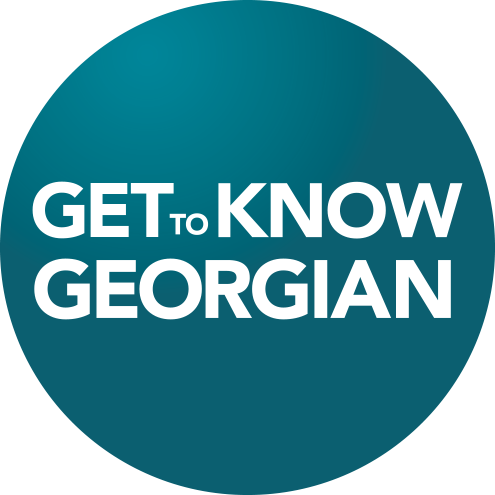
Visit us at our Get to Know Georgian event on March 3
Learn more and RSVP
Take a guided, in-person tour
of our campuses.
Book a campus tour.
Book a phone appointment
with a recruitment specialist.
Connect with a recruiter.
Join our email list for event updates, contest information and more.
Sign up for Georgian updates.




